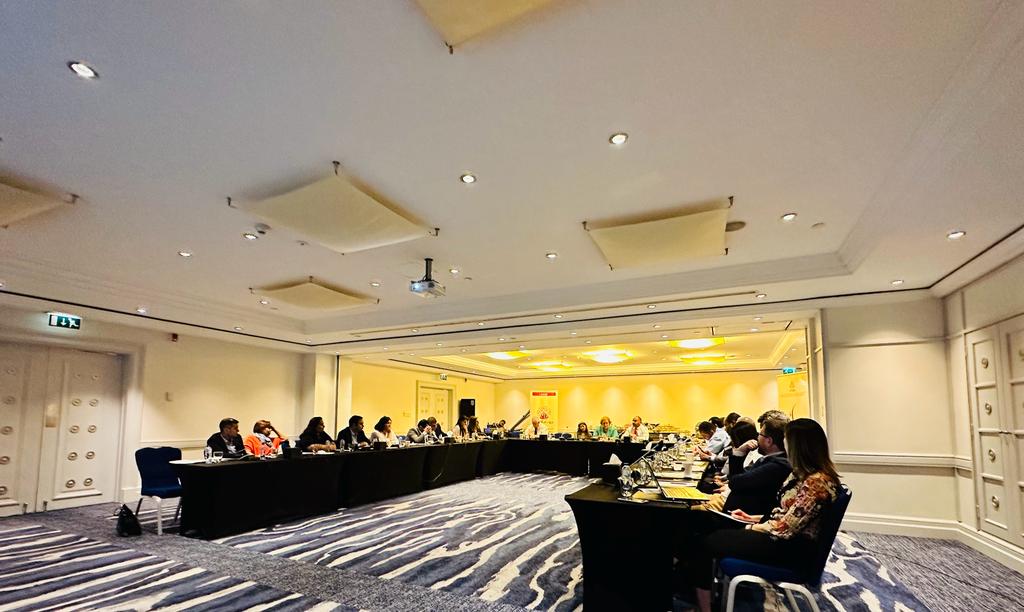The Jordanian civil society and government representatives convened in a follow-up meeting to create an action plan for implementing the recommendations from the strategic workshop “A New Partnership Paradigm: Renewed Trust and Functional Good Governance,” held at the Dead Sea last June.
The meeting commenced with an important question raised by Jordan NGOs Forum (JONAF9 Steering Committee member, and Senior Consultant at Durrat Al Manal Dr. Sawsan Al Majali: Does the government only require civil society institutions to provide charity aid, or does it also need supportive developmental, cultural, intellectual, and civilized entities?
The meeting, attended by governmental representatives, institutions, JONAF members, other civil society associations, media, and other national organizations, aimed at assessing the current state of civil society and developing a new vision, while also identifying the challenges that hinder civil work and finding ways to overcome these obstacles.
Al Majali emphasized the importance of civil society institutions and their role, while participants stressed the need to foster synergies and partnerships among all entities and actively implement the workshop´s recommendations which were divided into short, medium, and long-term stages. The four main workshop sessions covered topics such as the reality of civil society in Jordan, civil community and democracy, the establishment of alliances and their impact, and building trust and partnerships among all entities.
Challenges faced by civil society were addressed, including issues within the civil society itself, the gap between civil society and official entities, diverse governmental policies and bylaws, and challenges related to financing and media relationships.
One key outcome of the meeting was the recognition of the need to establish an independent body with financial and administrative authority to regulate civil work, limiting conflicts over roles and priorities among governmental entities. Participants recommended revising the law draft for associations and actively involving civil society in shaping compatible law articles.
A major challenge identified in the community was the fear of political participation and involvement in political parties. To address this, civil society should play a role in preparing individuals for social, political, and relief initiatives. It is essential to support democracy by encouraging greater political engagement, especially among underrepresented groups like women and youth.
The meeting emphasized the importance of supporting local actors and leaders to ensure stability and resilience. It also stressed the need to enhance the role of civil institutions in promoting democracy and fostering partnerships between civil society and various political components in Jordan, such as the parliament, government, parties, and unions.
In order to promote awareness and combat negative perceptions surrounding civil work, participants proposed the formation of a media alliance. Additionally, conducting studies and research is crucial to understand the needs and priorities of civil society. Furthermore, it is essential to examine the impact of foreign financing on the economy and establish specialized alliances to transfer knowledge and expertise among civil society institutions. Allowing the registration of these alliances is important for effective collaboration and cooperation.
Overall, the follow-up meeting successfully addressed the challenges and opportunities facing civil society in Jordan, paving the way for a more integrated and effective partnership between civil society and the government.


